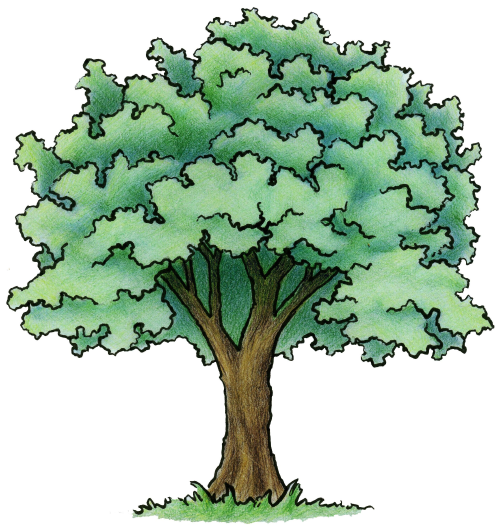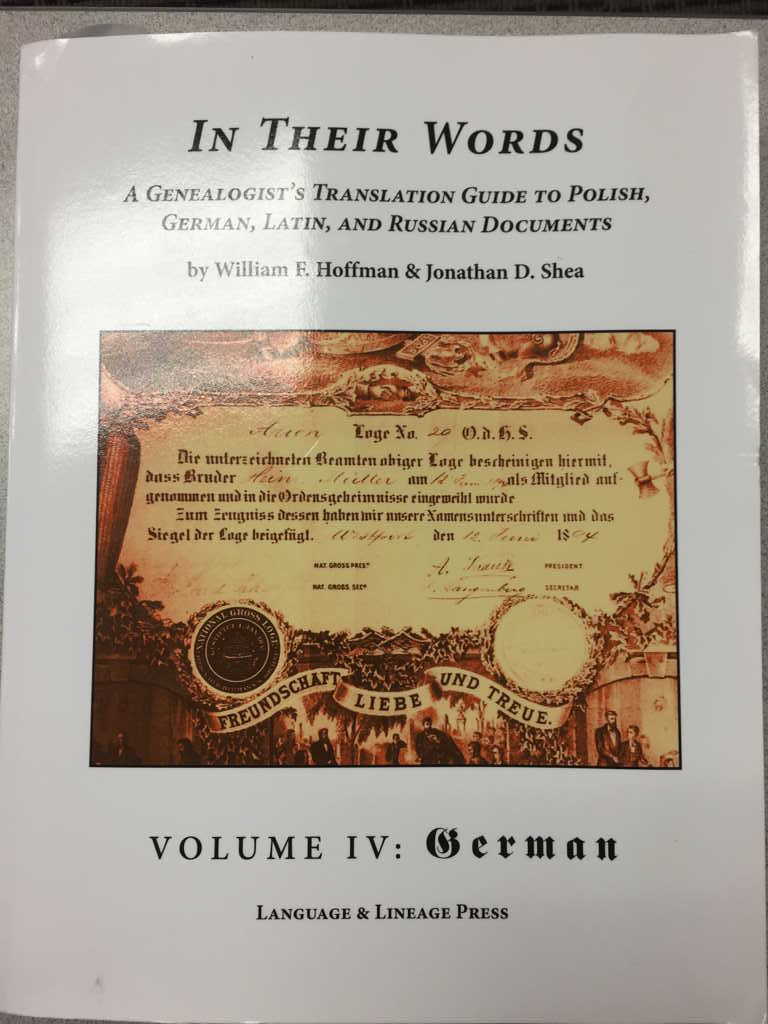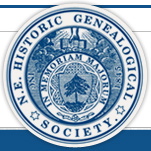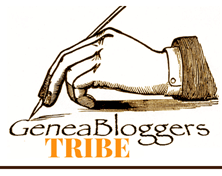Upcoming Events
Sherlock's Genealogical Adventures
Follow Sherlock on his adventures into genealogical mysteries.
2 minutes reading time
(462 words)
A Genealogy 101 No No
 While at Rootstech, a woman asked me for some help with a problem in her research. I took a look at what she had and although her question was related to finding a newspaper. I thought it would be good to see the documentation she had on the person in question, so I could be a little bit more informed. I asked her what documents she had and her reply was... "I dont have documentation, someone else does." She had used the information from a family tree that had been posted on the Internet, but had not taken a look at or verified the documentation. I told her about the old saying "Genealogy without Documentation is Mythology" and she said she had heard that before. I encouraged her to look at the documentation and evaluate it before continuing her research. It is much better to take your time and get it right. I was able to give her a name of someone I knew who might be able to address her newspaper question, so at least she did not go away empty handed and I hope that she will take my advice and verify the information in her family tree.
While at Rootstech, a woman asked me for some help with a problem in her research. I took a look at what she had and although her question was related to finding a newspaper. I thought it would be good to see the documentation she had on the person in question, so I could be a little bit more informed. I asked her what documents she had and her reply was... "I dont have documentation, someone else does." She had used the information from a family tree that had been posted on the Internet, but had not taken a look at or verified the documentation. I told her about the old saying "Genealogy without Documentation is Mythology" and she said she had heard that before. I encouraged her to look at the documentation and evaluate it before continuing her research. It is much better to take your time and get it right. I was able to give her a name of someone I knew who might be able to address her newspaper question, so at least she did not go away empty handed and I hope that she will take my advice and verify the information in her family tree.Posted family trees can be a GREAT help to your research, especially if you are presented with a brick wall in your research, but they should be considered as a tool in your research. We are all human and are prone to making mistakes. If the tree you find has any errors in it and you copy the information contained within, then you will perpetuate the errors especially if you also post your family tree for others to see. If you build a tree off of a mistake then not only have you spent a lot of time and money in vain, but you now have inaccurate information in your family tree and are doing a dishonor to your ancestors.
If you find a family tree that you think is part of your family tree, make sure you acquire those documents associated with it. If there is no documentation, contact the person who posted the tree and ask what documentation they have. Some people may not have documentation as they also copied information. If there is no documentation, then you will have to find the proof that is needed. If they do have documentation, examine it and verify that it is correct. Make sure you provide sources for all your documentation, to include the family tree in which you acquired it. Writing your sources is another topic onto itself. If this message reaches only one person and hits home, then this post was well worth it. You can save yourself a lot of headaches by taking your time in your research. GOOD LUCK!
Tags:
Stay Informed
When you subscribe to the blog, we will send you an e-mail when there are new updates on the site so you wouldn't miss them.
About the author
I have been doing genealogy research since 2002 & have worked full time as a Professional Genealogist since 2008. I specialize in Polish and American-Canadian Genealogy. As a member of APG, I was the 2010/2011 President of the New England Chapter of the Association of Professional Genealogists (NEAPG). I have Certificates of Completion for studies in "Foundations of Forensic Genealogy" and "Advanced Forensic Genealogy Techniques". I have been a volunteer librarian at the local Family History Center, and a genealogy research consultant at “Ask the Expert” Ancestry Road Shows. I have traveled to Poland numerous times & researched in churches and archives. At conferences and special events, you may find me dressed up in my Sherlock Holmes outfit, or my Kujawy (the folk costume from the region in Poland where my ancestors came from).
Sherlock's Latest Blog Post
T he long awaited day has arrived. The series of books that are guides to researching docments in other languages is complete. For awhile now, the translation guide books for Polish, Latin & Russ...
Blog Tags
.ged
18th Century
1940 Census
19th Century
20th Century
23 and Me
3 Maja
ACGS
Airport
Aleksandra Kacprzak
American-Canadian Genealogy Society
Ancestors
Ancestry DNA
APG
Apple
Archives
Archives.com
Association of Professional Genealogists
atDNA
Auschwitz
Autosomal DNA
Barbarka Memorial
Będzin
Berestechko
Bergen-Belsen
Białaczów
Biały Orzeł gazetka
Bierzgłowski Castle
Bieszczady Mountains
Birkenau
Black Manor
Blogging
Bluehost
Bobolice
Books
Boston
Brda River
Brick Wall
Bright Solid
Bydgoszcz
Calendar
Camera
Canada
Castle
Ceil Wendt Jensen
Cemetery
Centrum Kulturalno-Kongresowe Jordanki
Christmas
Chrzanów
Churches
Ciagała
Ciechocinek
City Directory
Cloth Hall
Concentration Camp
Conference
Copernicus
Council for the Advancement of Forensic Genealogy
Criminal Records
Croisetiere
Czchów
Czech Republic
Czerna
Dąbrowa Górnicza
Dachau
Darrin Lythgoe
Dear Myrtle
Dębowe Mocne
Deed
Diocesan Archives
DNA
Dorena Wasik
Dwór Czarne
England
Family History Library
Family Tree DNA
FamilySearch.org
FGS
FHL
Find my Past
Firkowski
Fold3
Forensic Genealogy
Forensic Genealogy Institute
France
Frankfurt
French Canadian
French-Canadian Genealogy
FTDNA
Galicia
GEDCOM
Genealogy
Genealogy Roadshow
Genetic Genealogy
Georgia
Germany
Gniewkowo
Goczałkowice-Zdrój
Gosprzydowa
Gowarczów
Grande Bibliotheque
Grave
Great Depression
Gregorian
Grudziądz
Grzawa
Gubałówka
Gulag
Harmęże
Historic Village
Historical Society
History
History Lines
Hohenfelz
Host
Immigration
In Their Words
Indexes
Inowrocław
iPad
iPod Touch
Irish
Jacek Jakubiec
Jan Matejko
Jelenia Góra
Jerome Kotchi
Jonathon Shea
Joomla
Judy Russell
Julian
Julitta Poisson
Kasprowy Wierch
Katowice
Katyn
Kazimierz Pulaski
Keynote
Kielce
Klecza Dolne
Kluki
Konopa
Końskie
Kórnik
Kościuszko
Kraków
Kresy-Siberia
ks. Walenty Waloszek
Language
Library
Lipnica Murowana
London
Lublin
Ludwigsburg
Ludwik Rahm
MAC
Magazine
Maków Podhalański
Malbork
Manitowoc Shipbuilding Company
Massachusetts
Metrical Records
Micherda
Miedzna Drewniana
Military
Mill Island
Mirka Wojnar
Mirosław Firkowski
Mirów
Mirów Castle
mitochondrial DNA
Mocavo
Monastery
Montreal
Morskie Oko
Mountain
mtDNA
Museum
NARA
Navy
Nazi
NEHGS
NERGC
Networking
Neuengamme
Newspapers
Niepołomice
Niepołomice Castle
Norway
Nowy Wiśnicz Castle
Old Buildings
Old Number Six Book Depot
Opoczno
Organization
Orlęta Armii Krajowej
Orłowo
Oś
Oświęcim
PAJ
Paradysz
Parish
Periodicals
PGSCTNE
PGSM
Philately
Pierniki
Piwczyk
Poland
Polish American Foundation
Polish American Journal
Polish Culture
Polish Food
Polish Genealogical Society of Connecticut and the Northeast
Polish Genealogy
Polish Tradition
Polonia Business Association
Poznań
Primary Source
Probate
Prussia
Przegorzały Castle
Pszczyna
Quebec
Record your history
Records
Registry of Deeds
Remininsce Magazine
Repository
Research
Reunion 10
Rogalin
Rogów
Ron Arons
Rootstech
Russia
Rynek
Rzeszów
Salt Lake City
Schwarzbach
Search Engine
Secondary Source
Ship's Manifest
Silesia
Sing Sing Prison
Skotniki
Śmigus-Dyngus
Software
Sonia Meza
Sosnowiec
Soundex
Sources
SS-5
SSDI
St. Nicolas
St. Roch
Stamp Collecting
Staniątki
Stanisław Firkowski
Stare Miasto
Stary Wiśnicz
Stefan Wisniewski
Stefania Firkowska
Sto Lat
Stories
Stuttgart
Submarines
Sucha Góra
Suchatówka
Sukiennice
Sw. Mikołaj
Sw. Roch
Święto Konstytucji
Szewna
Tadeusz Kościuszko
Tarnów
Tatry Mountains
Technology
Teutonic Knights
Thanksgiving
Thatched Roof
The Legal Genealogist
The Next Generation
The Warwick Arms Pub
Think Hotel
Tim Firkowski
TNG
Tomaszów
Toruń
Transparent Language
Travel
Treuchtlingen
Tyniec
Tyniec Castle
UCONN Polish Cultural Society
Uffenheim
Ukraine
Upton Chandler House Museum
USS Raton
Virginia
Virtual Museum
Vital Record
Warner Fall Foliage Festival
Warner Historical Society
Warsaw
Wawel Castle
WDYTYA
Website
Website Design
WFFF
White Eagle newspaper
Who Do You Think You Are? Live
Wigilia
Wild Card
William D. Bond
William Hoffman
Wisła River
Wrocław
WWII
Wyspa Młyńksa
Y-DNA
Zakopane
Żarki
Żarnów
Żarnówka
złoty
Łódz
Łukasz Firkowski
Blog Calendar
Wait a minute, while we are rendering the calendar

- Articles View Hits
- 2537491
We have 226 guests and no members online
Website by: Tim Firkowski






Comments 5
An overlooked reality with online trees is the simple fact they are mostly "works in progress" rather than completed genealogies. We have our trees at sites like Ancestry, FamilySearch or FindMyPast because we are in the process of researching our families. In the case of our most difficult or speculative lines, we might make those trees public explicitly to find cousins or collaborators. (Though that collaboration can often be had in private trees as well.)
It is incumbent on genealogists and family historians to take no source at face value. To at the very least trust but verify. You've offered great suggestions on how to assess those, at times invaluable, online family trees.
So very true. I have found so many erroneous trees with my family in them. They usually make for a good laugh and then a Facebook post as to why you need to see the documentation before you do anything else with the information you found. Personally, I like the note feature. Recently I found a family tree connection that had a newspaper article attached that said the family descends through the Harrison Presidents. I sent an email to the Harrison Home and Museum in IN and asked. Received an email the next day that told me they could not find that connection. I then posted that as a note to the newspaper article. Guess I am saving the next researcher.
Some people don't take that kind of advise well. I tried to tell my aunt's grandson that the info he had on my great-grandmother was wrong. I knew this as I had the privilege of knowing her when she was alive. He said he no longer would be contacting me. Go figure.
Hi, Tim,
I just wanted to let you know that this post was featured on my "Friday Finds and Follows" post at my blog, AnceStories: The Stories of My Ancestors.
I've been working as a genealogist since 1977 and in 2009 a man I was assisting at a local genealogy library took my PAF research file. It is full of mistakes and wrong turns. My family is a Taylor family of North Carolina. I was attempting to follow all the John Taylor's in NC and figure out where they were from. He has since given that file to others with my personal information including my children. He presents it as his work, we have one ancestor in common born in 1732.
Now all this bad formation is being shared on the internet. What can I do some people remove my personal information when I ask but that doesn't change the fact that bad information is being shared. Some have sources others have notes to remind me what has been researched. Most of my time on line is now spent correcting incorrect information others find and add to my work.
The information comes from my research file and no one wants to delete over 20,0000 names from their file. I have a huge number of people in my file that are difficult to research. Please let your readers know that nothing is factual unless it has documentation. Please feel free to use my story to let them know not everyone doing genealogy is concerned with quality of work. Some just want quantity. Sincerely,